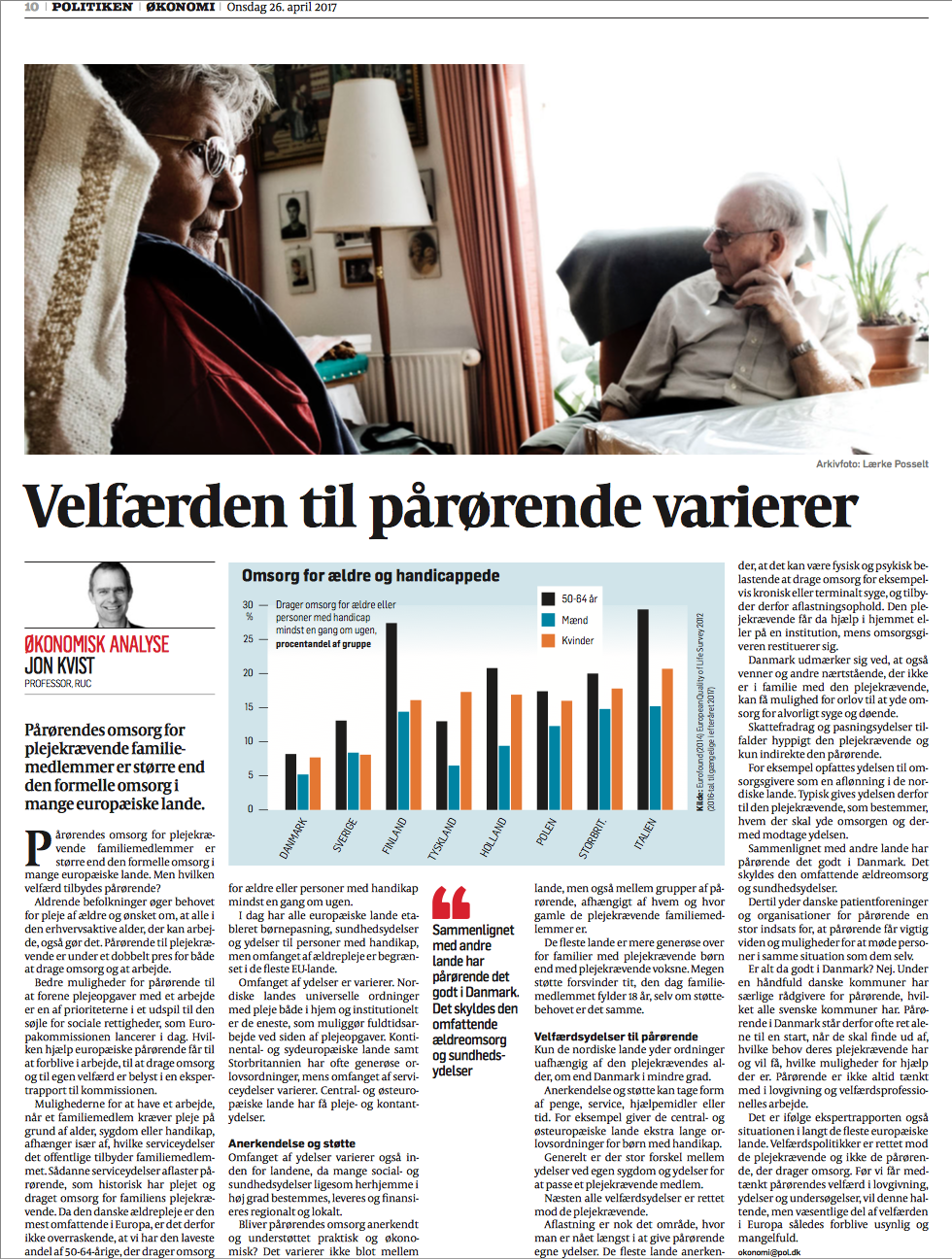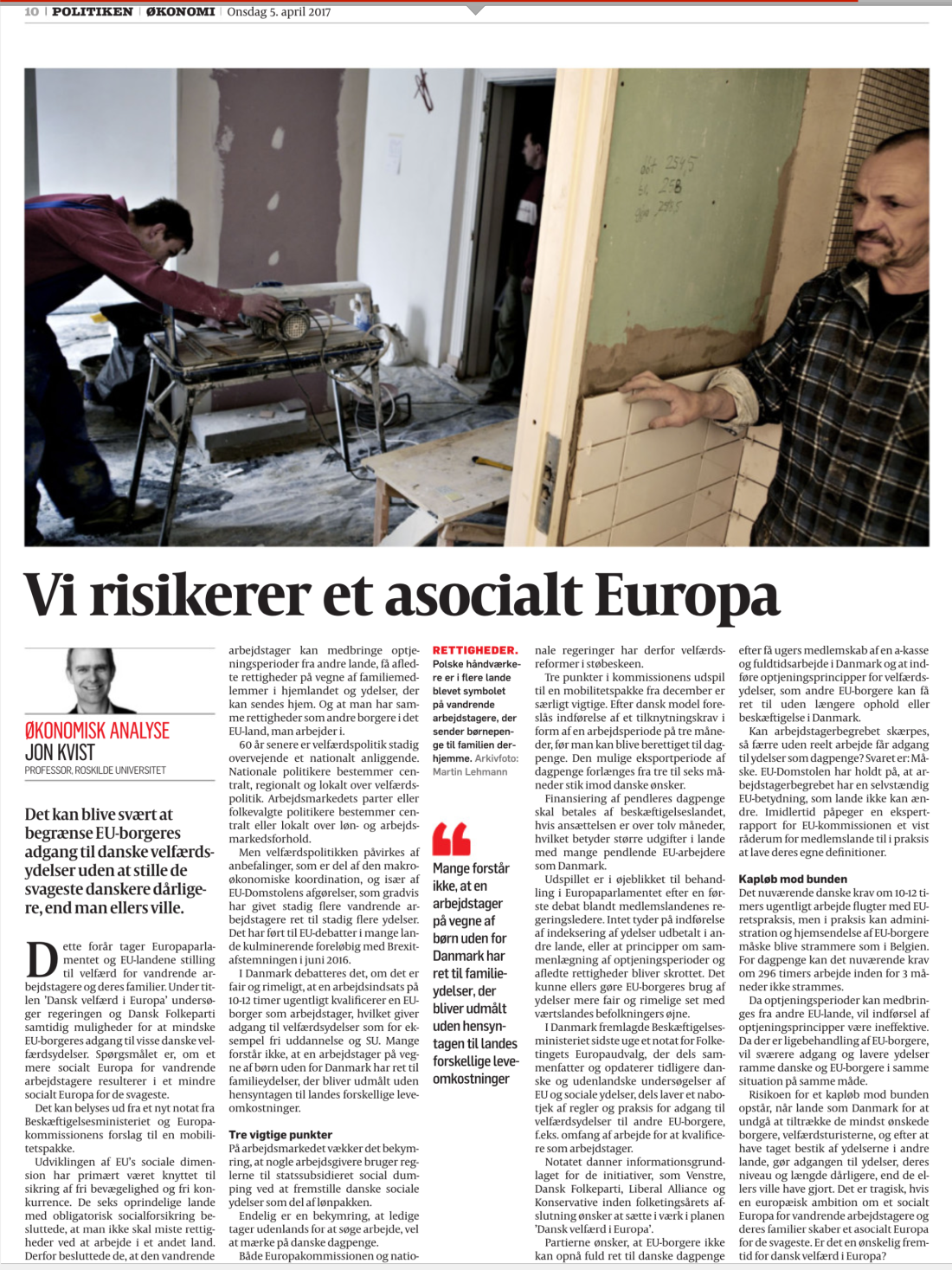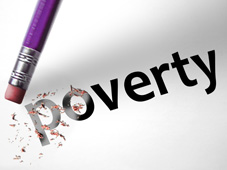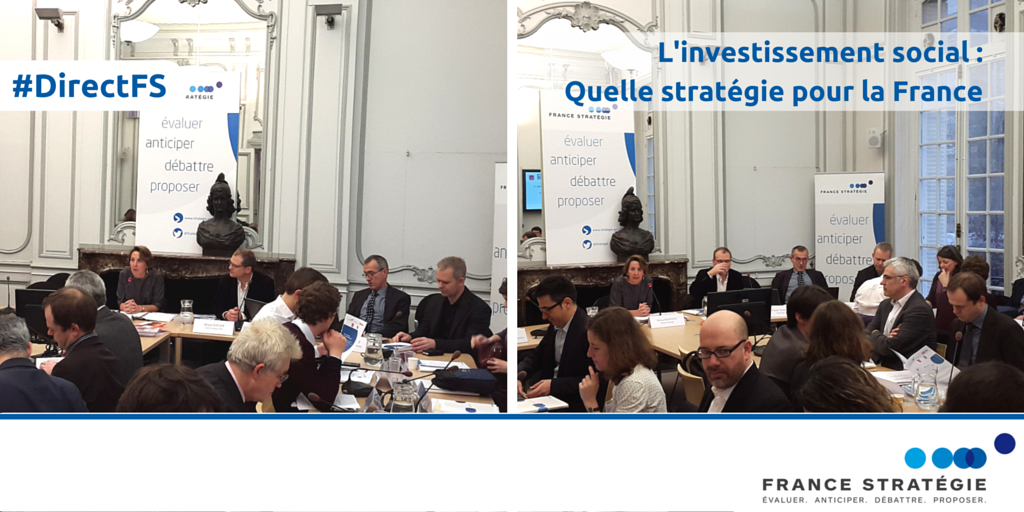Friends and relatives provides invaluable informal care in all European countries. But what support do the y get to balance care with work? Which recognition do they get in terms of financial and practical help? And what rights do they have independently of the person cared for to respite offers, advice, training, and to be included and heard in the formal care system?
y get to balance care with work? Which recognition do they get in terms of financial and practical help? And what rights do they have independently of the person cared for to respite offers, advice, training, and to be included and heard in the formal care system?
Answers to such questions can be found in the ESPN 2016 report “Work-life balance measures for persons of working age with dependent relatives in Europe” which got renewed importance yesterday as the work-life balance is part and parcel of the European Commission proposal for a European Pillar of Social Rights. If in a hurry you may consult this op-ed for the Danish daily Politiken.
 as fair and just by national populations, then national governments may addres popular anxieties of unintended use of benefits – real or not – by reducing access and generosity, of, minimum income benefits thereby making Europe less social,
as fair and just by national populations, then national governments may addres popular anxieties of unintended use of benefits – real or not – by reducing access and generosity, of, minimum income benefits thereby making Europe less social,  Celebrating the 60 years birthday of the Treaty of Rome 21 Danish policy-makers, artists and scholars give their take on what the EU is the answer to. In
Celebrating the 60 years birthday of the Treaty of Rome 21 Danish policy-makers, artists and scholars give their take on what the EU is the answer to. In 

 in Politiken.
in Politiken. Lower social security benefits undermine evidence based measures aimed at inclusive growth. Lower social security benefits are often ineffective against many claimant groups and harm children and their social mobility. In short the current Danish make work pay strategy can have unintended adverse effects that jeopardize inclusive growth and is a move away from the Nordic welfare model. For more see
Lower social security benefits undermine evidence based measures aimed at inclusive growth. Lower social security benefits are often ineffective against many claimant groups and harm children and their social mobility. In short the current Danish make work pay strategy can have unintended adverse effects that jeopardize inclusive growth and is a move away from the Nordic welfare model. For more see  Countries can be judged by how they treat their weakest citizens. Following recent welfare reforms the question is how the champions of equality, the Nordic countries, including Denmark, do in an international perspective. The analysis finds that the Nordic countries today provides good quality services to help vulnerable citizens get better health, education and work. Economically the minimum income schemes have been reduced in all Nordic countries, excluding Finland. In Denmark the minimum incomes are better for people with attachment to the labour market and the country.
Countries can be judged by how they treat their weakest citizens. Following recent welfare reforms the question is how the champions of equality, the Nordic countries, including Denmark, do in an international perspective. The analysis finds that the Nordic countries today provides good quality services to help vulnerable citizens get better health, education and work. Economically the minimum income schemes have been reduced in all Nordic countries, excluding Finland. In Denmark the minimum incomes are better for people with attachment to the labour market and the country. In the European Social Policy Network (ESPN) we are 35 independent experts who have written the country reportsthat highlight and assess the contribution of minimum income schemes to both preventing and alleviating poverty and social exclusion, and fostering an active inclusion approach to promoting social investment.
In the European Social Policy Network (ESPN) we are 35 independent experts who have written the country reportsthat highlight and assess the contribution of minimum income schemes to both preventing and alleviating poverty and social exclusion, and fostering an active inclusion approach to promoting social investment.